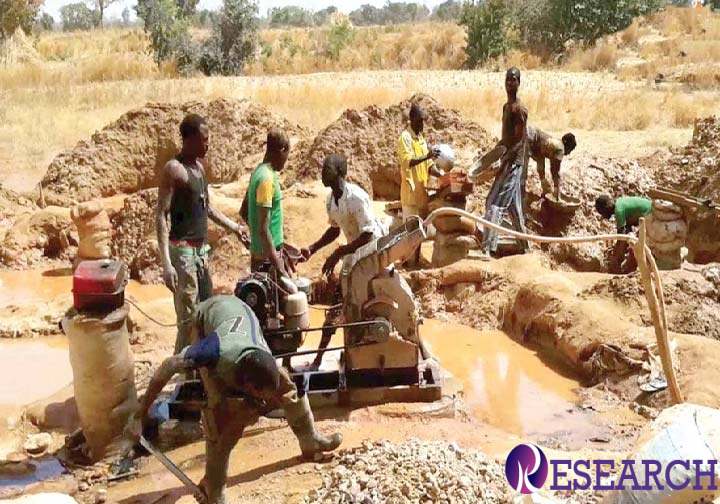Introduction
Mining in Ibadan, Nigeria, holds a unique position within the country’s economy. Ibadan is more than just a historical city; it’s also a key region for mining various natural resources. This article dives into the heart of mining in Ibadan, discussing its importance, the types of resources mined, the impacts on the community and environment, and the challenges faced by this industry.
Overview of Mining in Ibadan
Mining in Ibadan has a long history and has grown into a significant contributor to the economy of Oyo State. The city’s geological makeup has endowed it with numerous natural resources, making it a hotspot for mineral extraction.
Types of Minerals Mined
Ibadan’s mines yield valuable minerals such as gold, tantalite, limestone, and granite. Each mineral serves a unique purpose in local and global markets. For example, limestone is a vital ingredient in cement production, while tantalite is crucial for electronics manufacturing.
History of Mining in Ibadan
Mining in Ibadan dates back to pre-colonial times. Initially, mining practices were more informal, but post-independence, the Nigerian government’s efforts to regulate and encourage mining have shaped the industry we see today.
Economic Impact
Mining brings substantial economic benefits to Ibadan’s. It supports a range of businesses and generates revenue for local governments through taxes and royalties. However, with the economic rewards come complexities, including fluctuating mineral prices and economic dependency on finite resources.
Environmental Impact
Mining impacts Ibadan’s environment significantly. Issues like soil degradation, water pollution, and deforestation are prevalent, affecting both the natural landscape and the quality of life for residents. Despite these challenges, sustainable mining practices are slowly being implemented.
Social and Community Impact
The mining sector creates jobs and offers income-generating opportunities, but it also disrupts communities due to relocation and health concerns from pollution. These effects have sparked debates on the balance between economic benefits and social responsibility.
Challenges Faced by Miners
Mining in Ibadan’s isn’t without its hurdles. Miners encounter poor infrastructure, safety risks, and limited access to modern equipment. Government support and investment in mining infrastructure could play a vital role in mitigating these challenges.
Government Regulations
The Nigerian government has established policies and frameworks to oversee mining practices. Licensing requirements, safety regulations, and environmental protection measures are all in place, yet enforcement remains inconsistent.
Mining and Local Employment
Mining provides employment opportunities for many people in Ibadan, especially in rural areas. While jobs in mining are available, they are often low-paying and come with health risks, highlighting the need for improved working conditions.
Safety Concerns in Mining
The risks associated with mining, including accidents, exposure to harmful substances, and structural collapses, are significant. Local authorities and mining companies must prioritize the safety and well-being of their workers.
Technological Advances
Innovative technology is transforming mining in Ibadan. From geological surveys to automated equipment, modern tools help make mining more efficient and reduce environmental impact.
Future of Mining in Ibadan
With better regulations, investment, and sustainable practices, mining in Ibadan has the potential to thrive. The future holds opportunities for growth, but also calls for solutions to the environmental and social challenges that accompany the industry.
Conclusion
Mining in Ibadan remains a critical part of Nigeria’s industrial landscape, offering both opportunities and challenges. The city’s abundant resources have the potential to fuel economic growth, but only if balanced with sustainable practices and improved community engagement.
FAQs
1. What minerals are commonly mined in Ibadan?
Limestone, gold, tantalite, and granite are among the most commonly mined minerals in Ibadan.
2. How does mining impact the environment in Ibadan?
Mining leads to soil degradation, water pollution, and deforestation, posing risks to both ecosystems and residents.
3. What challenges do miners face in Ibadan?
Miners encounter poor infrastructure, safety concerns, and limited access to technology, which affect their productivity and safety.
4. How does mining contribute to Ibadan’s economy?
Mining supports local businesses, creates jobs, and generates revenue for the government, playing a significant role in Ibadan’s economic landscape.
5. What is the future outlook for mining in Ibadan?
The future of mining in Ibadan looks promising with more investment and sustainable practices, but it requires addressing environmental and social challenges.






